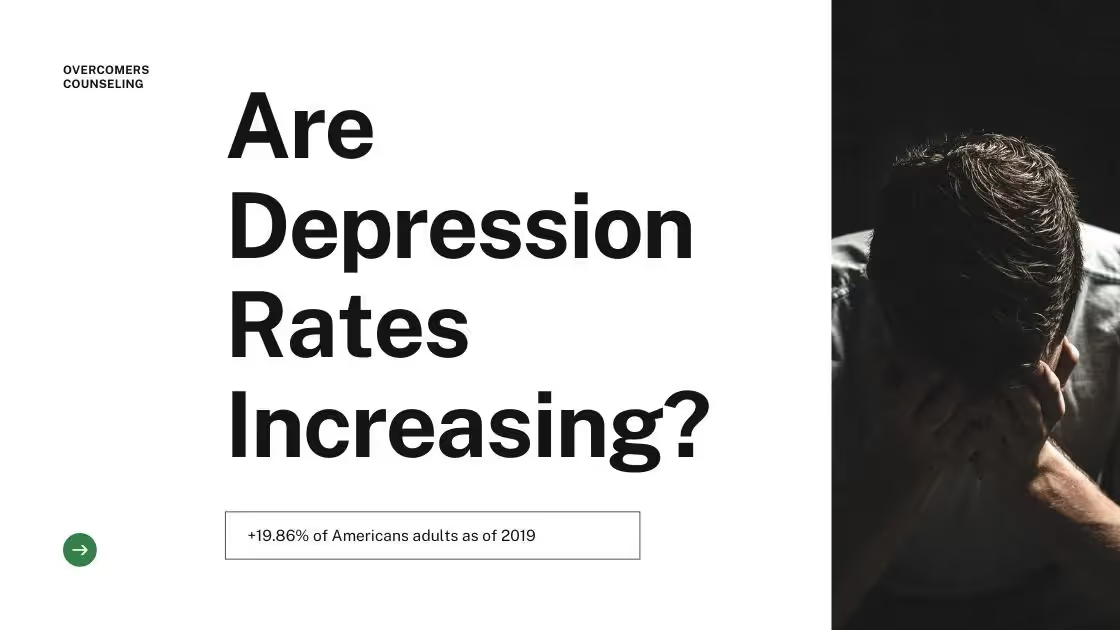Are depression rates increasing? Yes, they are. According to medical experts and mental health data, depression rates in the United States have been...

Are depression rates increasing?
Yes, they are.
According to medical experts and mental health data, depression rates in the United States have been rapidly increasing over the past decade.
And, this drastic increase in depression rates was happening even prior to the beginning of the COVID-19 pandemic in 2020.
According to recent data released by Mental Health America, a non-profit dedicated to improving the mental health of Americans, depression rates have been increasing in the United States to as much as 19.86% of Americans adults as of 2019.
That means that around 50 million Americans experience mental health struggles, such as anxiety, depression, and severe depression.

Depression rates are also increasing among young adults. Up to 20% of young adults from the ages of 12-17 in the United States report experiencing depression or severe depression.
That's the incredibly high number of 15 million young adults! And, while depression rates are increasing for everyone in the United States, there are certain groups - particularly minorities - who are especially vulnerable.
For example, bi-racial youth seem to be hit the hardest since, acording to mental health data, depression rates are increasing the most among young adults who identify as more than 1 race.
While all of this might sound depressing, don't let it get you down. It means that if you are struggling with depression, or anxiety, or even severe depression, then you are definitely not alone. At all.
There is nothing unusual or weird about feeling depression. If you are interested experiencing depression, there are a lot of other people who are too. That's true even if they don't talk about it.
Depression rates increasing in the United States means that there are many more people dealing with depression than you may realize.
Some of them may even be unaware since depression is often a confusing and overwhelming mental state. But most importantly what you should take away from this is that feeling depressed, struggling with depression, or experiencing clinical depression is much more common than you might think.
It is also very common to assume that you���re suffering alone. Or, that there is something wrong with you. Or, no one else feels the way that you do. That's not true!
You are not suffering alone. There is nothing wrong with you. Unfortunately, a lot of people experience depression. Yes, even severe depression.
This is especially true in these unprecedented times.
While depressing rates have been increasing until 2019, since the COVID-19 pandemic they���ve skyrocketed even more.
According to a study by Brown University, this has remained true even now. Meaning that typically depression and anxiety will lessen over time after a traumatic event. However, with the pandemic, these rates have continued to increase over time.
This means that depression rates are increasing even now.
It���s important to not let any feelings about having depression prevent you from seeking help or treatment.
And, even if you are avoiding treatment currently, it may comfort you to know that you are not alone in that either.
While depression rates are increasing, the majority of those with depression are going under-treated. Under half of adults with a mental illness do not receive treatment, totalling over 27 million American adults who are not receiving any kind of treatment for their mental health.
If you feel like that might describe you, please remember that you are not alone.
And, that just by being on this site you���ve taken a great first step toward improving your mental health.